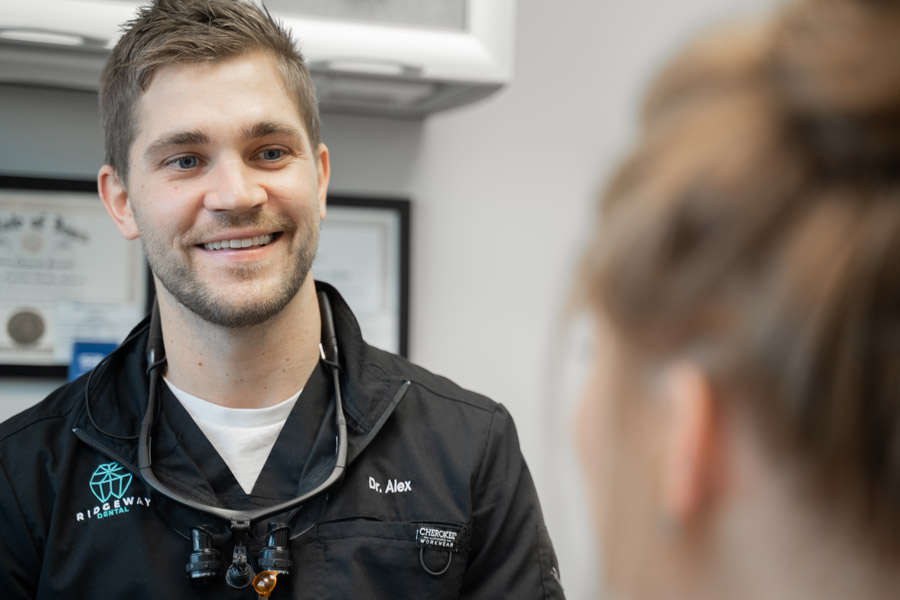
Dentures & Partials
Ridgeway DentalProperly fitted, well-constructed dentures should allow you to eat without a problem and be so comfortable that you forget they are there. We specialize in full and partial dentures that restore full function without discomfort or embarrassment.
Types of dentures:
Conventional
This full removable denture is made and placed in your mouth after the remaining teeth are extracted and tissues have healed. This process may take several months.
Immediate
This removable denture is inserted on the same day that the remaining teeth are removed. Measurements will be taken, along with models of your jaw during a preliminary visit. You don’t have to be without teeth during the healing period, but may need to have the denture relined or remade after your jaw has healed.
Overdenture
Some of your teeth can sometimes be saved to preserve your jawbone and provide stability and support for the denture. An overdenture fits over a small number of remaining natural teeth after they have been prepared. Implants can serve the same function, too.
New dentures may feel awkward for a few weeks until you become accustomed to them. The dentures may feel loose while the muscles of your cheek and tongue learn to keep them in place. It is not unusual to experience minor irritation or soreness. You may find that saliva flow temporarily increases. As your mouth becomes accustomed to the dentures, these problems should go away. Follow-up appointments are generally needed after a denture is inserted so the fit can be checked and adjusted. If any problem persists, particularly irritation or soreness, be sure to consult with us right away.
Good dental hygiene is still best practice even after dentures have been put in. Brush your gums, tongue and roof of your mouth every morning with a soft-bristled brush before you insert your dentures to stimulate circulation in your tissues and help remove plaque.
Partials
What to expect:
- In the beginning, your new partial denture may feel awkward or bulky. This is normal and eventually you will become accustomed to wearing it on a daily basis
- Removing and inserting the partial denture will require some practice
- You will need to carefully follow instructions given to you after your procedure. Your denture should fit into place with relative ease. Do not force the partial denture into position by biting down. This could bend or break the clasps
- You will be given specific instructions about how long the denture should be worn and when it should be removed.
- Initially, you may be asked to wear your partial denture all the time. Although this may be uncomfortable at first, it’s the quickest way to identify areas that may need adjustment.
- If the denture puts too much pressure on a particular area, that spot will become sore. Those spots can be adjusted to fit more comfortably. After making adjustments, it will probably be recommended that you take the partial denture out of your mouth before going to bed and replacing it in the morning.
- Eating should become a more pleasant experience with dentures. You can start out by eating soft foods that are cut into small pieces. Chew on both sides of the mouth to keep even pressure on both sides and avoid foods that are extremely sticky or hard. You may want to avoid chewing gum during the adjustment period as well.
- Partial dentures can also help improve your speech. One thing that can help you practice your speech is reading out loud. Repeat the words that give you trouble. With time, you will become accustomed to speaking properly with your partial denture.



